ENDPAPER PICTURE CREDITS (numbered clockwise from top left)
1. and 6. Menu for FDRs dinner for WSC
9 August 41, Courtesy of the Franklin D. Roosevelt Presidential Library, Hyde Park.
2. and 4. Claridges bill and guest list re India Bill
Reproduced with kind permission of Claridges, London and of Curtis Brown, London on behalf of the Estate of Sir Winston Churchill, and the Master, Fellows and Scholars of Churchill College, Cambridge. Copyright Winston S. Churchill.
Churchill dinner at Potsdam
Reproduced with permission of Curtis Brown, London on behalf of the Estate of Sir Winston Churchill, and the Master, Fellows and Scholars of Churchill College, Cambridge. Copyright Winston S. Churchill.
With best wishes menu card sketched by WSC
Reproduced with permission of Curtis Brown, London on behalf of the Estate of Sir Winston Churchill, and the Master, Fellows and Scholars of Churchill College, Cambridge. Copyright Winston S. Churchill.
Letter to Savoy re overcharging
Reproduced with permission of Curtis Brown, London on behalf of the Estate of Sir Winston Churchill, and the Master, Fellows and Scholars of Churchill College, Cambridge. Copyright Winston S. Churchill.
Labels for game from the King to Downing Street
Reproduced with permission of Curtis Brown, London on behalf of the Estate of Sir Winston Churchill, and the Master, Fellows and Scholars of Churchill College, Cambridge. Copyright Winston S. Churchill.
For Irwin,
for everything

CONTENTS

O n 27 October 1953 a Labour MP asked Winston Churchill during Prime Ministers Questions whether he would indicate if he will take the precaution of consulting the consuming public before he decides to abolish the Food Ministry? Churchill replied, to gales of laughter, On the whole, I have always found myself on the side of the consumer . It was true; Churchill always was a great consumer when it came to food, but also when it came to drink and cigars. As this well written, meticulously researched and beautifully illustrated book shows, Churchills appetites were enormous, and not least his appetite for life.
Nobody could be better qualified to have written this book than Cita Stelzer, an assured political and society hostess around whose own dinner tables on both sides of the Atlantic well-informed conversation sparkles, but it is nonetheless astonishing that the subject of Churchills dinner diplomacy has not been written about before. For as the author authoritatively proves in her first chapter, Churchill used mealtimes and primarily dinners almost as political weapons.
Dinner parties provided the ideal opportunity for Churchill to establish a personal dominance that allowed him to get his way so often that Stelzers scholarship counts as ground-breaking in identifying the phenomenon. His great gifts of conviviality, intelligence, humour, memory, anecdotal ability, wit, hospitality and not least alcoholic hard- headheadness , all helped him to charm and ultimately to persuade all but his most intellectually prosaic of guests. The fact that his daily afternoon nap meant that he rarely flagged even into the early hours of morning helped a good deal too, especially when surrounded in wartime by busy men who could not indulge in the same luxury.
Yet as Stelzer acutely observes, the social etiquette of dinner parties also provided an opportunity to discuss great matters of state with powerful decision-makers in an environment where there were no agendas, civil servants, stenographers or private secretaries to formalise things. Conversation could be directed towards the most important issues of the day without the impedimenta of official records, committee minutes or any of the other barriers to open expression that so often tend to inhibit free exchanges of view.
When Churchill went to war he fought with every weapon in his formidable personal arsenal, and Stelzer brilliantly shows how one of these was undoubtedly the dinner party. During the course of a life devoted to persuasion, Churchill employed argument, eloquence, anger (both real and feigned), occasional threats, charm and even sometimes tears, but here we also see his deployment of the dinner party as a means of getting his way. How much better his methods than those of Hitler and Stalin
Now that we already have biographies of Churchills grandmother, his bodyguard and his (wholly obscure) constituency association chairman, it is high time that we have one of his stomach. It helps that good food and drink and cigars mattered to Churchill, and that he had a late-Victorian aristocrats taste for the best in all three. Stelzers meticulous research proves conclusively that if he had not been the greatest world statesman of the twentieth century perhaps of any century he would have made a very fine sommelier or maitre dhtel at the Savoy or the Ritz hotels.
However, this book is not simply a paean to all things Churchillian: Stelzer also acknowledges the great mans chronic unpunctuality at mealtimes, the fact that he would practise his seemingly impromptu aperus, and of course the way that he was able to supplement the rationing rules that made life difficult for so many of his countrymen for six long years of war (and several more of peace too). Yet if, as Napoleon said, an army marches on its stomach, Winston Churchill certainly marched to victory in the Second World War on his stomach, and no one in their right mind would begrudge him a mouthful of Beef Wellington or a drop of 1870 brandy as he did so.
One area in which Stelzers scholarship makes an invaluable contribution to the protection of Churchills reputation lies in her demolition of the arguments of those who accuse him of chronic alcoholism. Adolf Hitler was obsessed by Churchills drinking, describing him on various occasions as an insane drunkard, a garrulous drunkard and as whisky-happy. Similar accusations were regularly made by Dr. Goebbels propaganda machine, and have since been made by the revisionist historians John Charmley and Clive Ponting and the former historian David Irving. In a sense, Churchill helped his enemies enormously in this, because of the great number of jokes he made himself about his own drinking, never for a moment considering it something which he needed to apologise for or explain. Stelzers explosion of the myth, and her careful estimation of the true level of Churchills drinking, is wholly convincing, and will hopefully set the record straight for good. Churchill enjoyed his drink, but had a constitution that could easily take it.
Stelzers discovery and publishing of many never-before-seen photographs of people and places connected with Churchill and his dinners is another useful contribution to our understanding of the period, the result of her diligent research in private and public archives and her acquaintanceship with so many people now sadly a dwindling band who knew and worked with the great man. At breakfasts, luncheons, picnics and dinners Churchill never conformed to the Regency rules regarding the banning of politics as a proper conversational topic over meals. Instead, he would turn mealtimes into information-exchange seminars, international summits, intelligence-gathering operations, gossip-fests , speech-practice sessions and even semi-theatrical performances . It must have been thrilling to have been present.

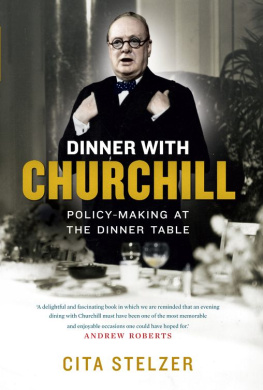
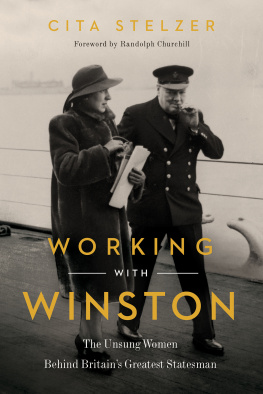
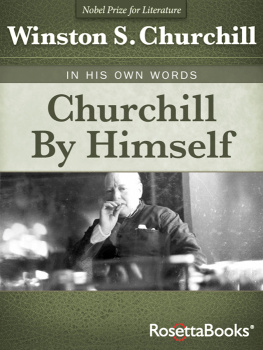

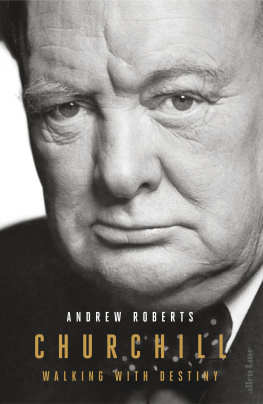



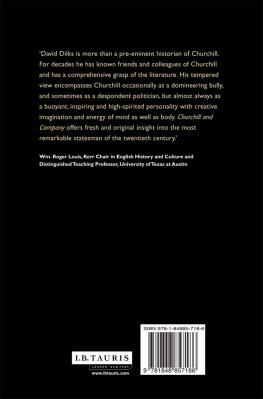

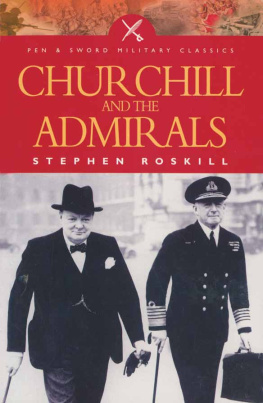
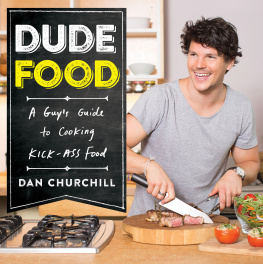
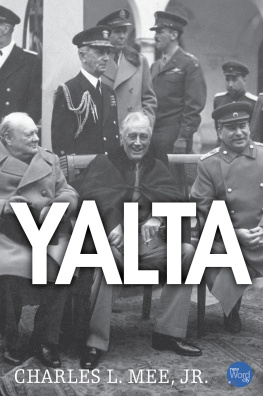
 CONTENTS
CONTENTS 

